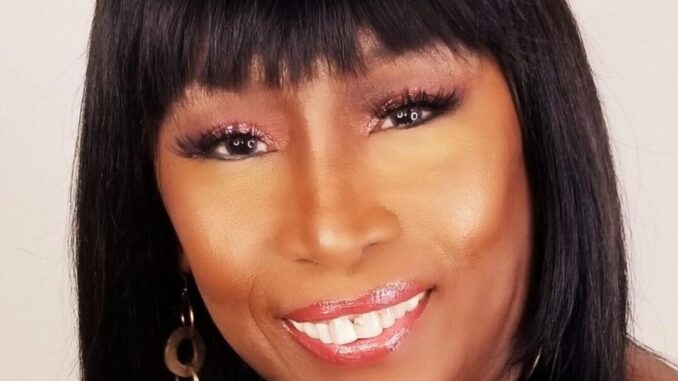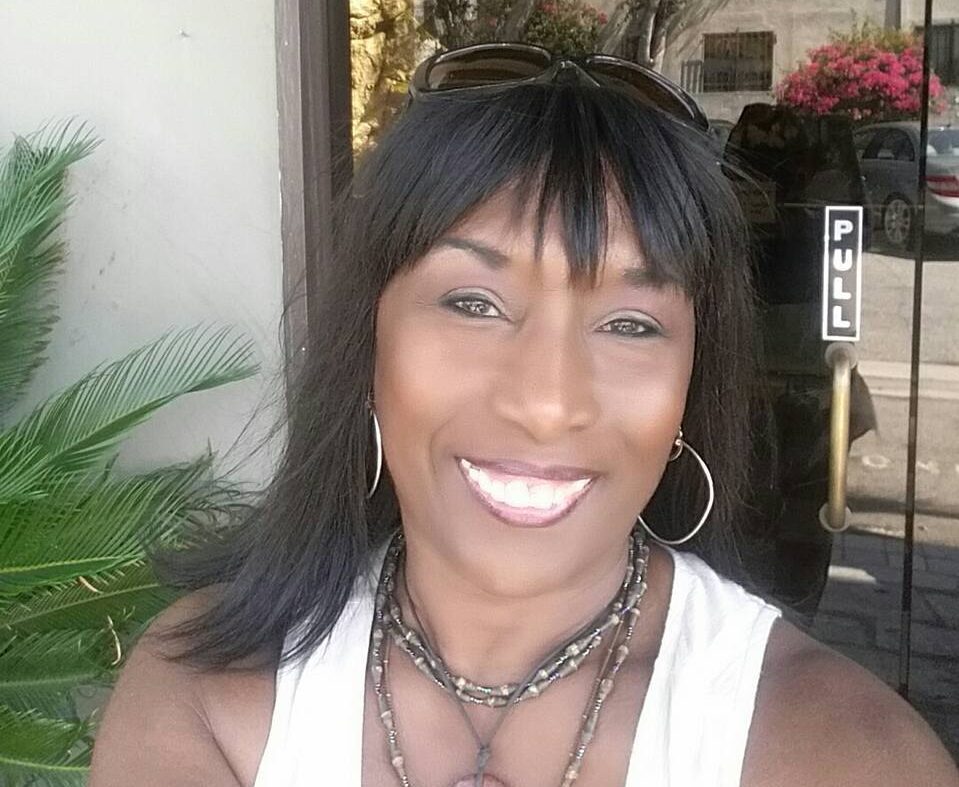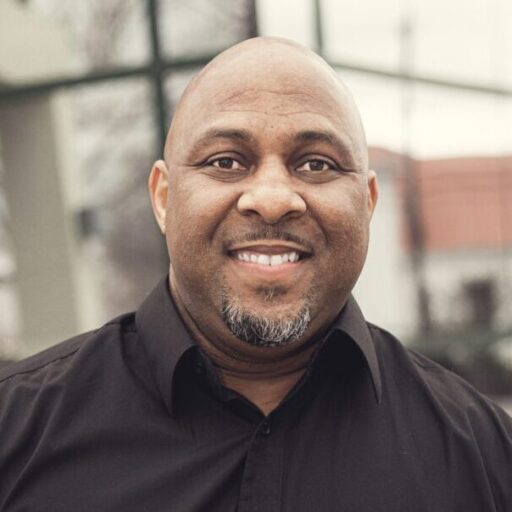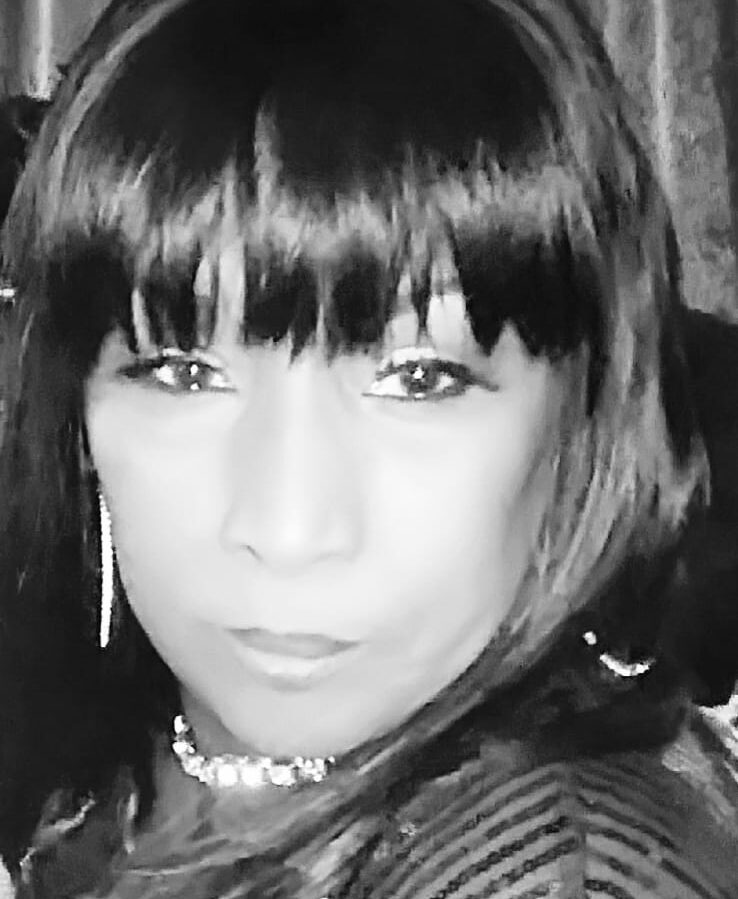
During the late 1980s, there were not many African-American women appearing as the face of a network television show. Those opportunities were even less abundant for women with darker complexions. But when “Showtime at the Apollo” debuted in 1987, Kiki Shepard became the face of the show.
The show went through several hosts, but Shepard was ever-present as co-host. The former Broadway dancer broke barriers by showing the world that black is beautiful. Her beauty, charisma and personality were on full display every Saturday night, while her professionalism and ability to adjust to hosting changes led to her longevity. The southern belle set the Harlem stage on fire and became television royalty, often referred to as “The Black Vanna White.”
Zenger News spoke with Shepard about her career, her journey from Tyler, Texas, to Harlem, N.Y., and her passion for bringing awareness to sickle cell anemia disease through her K.I.S. Foundation.
Percy Crawford interviewed Kiki Shepard for Zenger News.

Zenger: Hello Miss Shepard. Aside from having flawless genetics, how are you doing?

Shepard: (Laughing). You know what, I have to say, thank you for that because I thank my mother daily. You talk about flawless. When my mom passed, she looked like she was 30 years younger than she was. People tell me all the time, “Kiki, do you get any older?” I can see it, but if others can’t, I just have to say, thank you, mommy. And I am doing well. How are you?
Zenger: I am speaking to my childhood crush, so I couldn’t be better. Thank you for your time.
Shepard: (Laughing). You are quite welcome. Thank you. Always good to hear when someone is good given this Covid mess. But I have to say, thank you, Lord. I’m blessed, my whole family has been blessed. Nobody has really been sick. I have two young nieces that I raised that are 21 and 22, and they just think that the world is their oyster, and they can just do whatever. But we get tested regularly, and we just stay with our friends. But I’ve been blessed that nothing has come their way, and nothing has come my way.
Zenger: You are known for “Showtime at the Apollo,” but you have been in movies, you’ve done voice-overs, such a talented woman. Was it important for you to explore every talent and not just stick with what you were known for, so to speak?
Shepard: Yes! My mother and father were both educators. We grew up in Texas. We were called “The Shepard Sisters from Tyler, Texas.” My parents stressed that we utilized every talent that we had, every opportunity that we had, every gift that came our way, to consider it just that, a gift. They stressed the importance of making the most out of it because so many didn’t have those opportunities.
I don’t know if it happens in your 20s or your 30s, but you’re not necessarily always conscious of the benefits or results of your choices. But at least I do know if something came my way, I was going to step on out and try it anyway. That’s always been a part of our upbringing and the way we were taught, step out on faith. And preparation meeting opportunity is what luck is about.
Zenger: How did a southern girl from Texas end up in Harlem, N.Y., co-hosting “Showtime at the Apollo?”
Shepard: She left Texas and went to Howard University in Washington, D.C. I graduated from Howard University and went to New York as a dancer and danced on Broadway for 10 to 11 years. I was blessed because I have to admit that I was very, very good. I auditioned once and from that, for 10 years I got called.
View this post on Instagram
At the end of the ’80s is when “Showtime at the Apollo” was beginning. And a choreographer by the name of Otis Sallid was hired as a choreographer of the show, and he had been one of my mentors who had worked with me and taught me over the years. So, he asked me to be his assistant.
At the very beginning, there were six dancers. The girls that came down the aisle with the feathers and all. Otis Sallid … ended up leaving the show and the job fell to me. He instructed me how to do everything, so I ended up choreographing that number with the fans and all that stuff. But after the third show, they cut the dancers out.
Because I was a choreographer, I was in all the production meetings, and I was the tallest of the dancing girls … they said that they needed somebody to hold their hand over the contestants for amateur night.
Dancing was my chosen field. That’s all I was thinking about. And then after the night we did our first take, after the dancers were finished doing our number, we were all celebrating in our room, and they said, “Kiki-Kiki, we need you,” and I said, “For what?” I was so tired and worn out. They said, “We need you for amateur night.” And that’s when they took me in, gave me some cute clothes, did a whole ‘nother hairstyle and all that stuff.
So, long story short, it was God saying, “Little girl from Tyler, Texas, this is what I have for you. I’m going to lay out a path that you will utilize to become well-known in households across the country to be able to utilize and promote other platforms, other policies, other wishes for people.” It was God. No way that I could have done this myself.
Zenger: That’s a hell of an occupation change to go from being just a dancer to co-host and singled out. Were you ever nervous?
Shepard: Let me clarify, not only was I doing the stuff on amateur night, hand over the head, I still was doing the dancing, I still was the choreographer. By that time I had been on Broadway for 10 straight years, which was the best education of live performance that you can get. I am always nervous before I hit the stage. I’m nervous because I want to be the best that I can be. I’m not nervous that I’m not capable because I studied my craft.
George Faison, who won the Tony Award for “The Wiz,” I worked a lot with him in New York. George identified that I had excellent “sight IQ,” which means I can see something and take a picture that goes in my head and when I need it, I can recall that picture. That’s always benefited me greatly.
Zenger: During your time on “Showtime at the Apollo,” you saw so many acts and talented musicians before they reached prominence. Does anyone stick out in your mind?
Shepard: I always think about Lauryn Hill. Lauryn Hill came on as a little girl. I think she was a teenager. And you could tell she could sing. I completely forgot about it and her being on amateur night. Next thing I know, here she is with the Fugees. And I’m like, “Isn’t that that little girl?” It was amazing. That is the one person I think about the most. That little girl who was just so talented and became so successful.
Zenger: That show went through its fair share of hosts, and you survived them all. What were the keys to your longevity on that show?
Shepard: That’s right, baby! I went through all of ‘em. That’s right. Sinbad, Mark Curry, Steve Harvey, Rudy Rush — Kiki Shepard was there through all of ‘em. I think the fact that I was able to assimilate what each one needed. I was able to make myself the best partner for each one. To be honest, Sinbad really established us as host and co-host. Before that, every week we would just have a guest co-host come in, from Bill Cosby on down. You name them. Anybody that was prominent in the late ‘80s and early ’90s.
Sinbad was the first permanent host we had. I was just so tickled with Sinbad. He was tickled that I was tickled. Mark Curry … Mark was innocent. He was sweet. He was not sure of what all of this was because he was just becoming large on the comedy circuit. So, to Mark I was like a big sister. And then Steve [Harvey] came and the show just clicked and locked into what it became known as. And I became a partner to Steve. Steve determined exactly how it was going to go. He named me, “The First Lady of Apollo.”
There was a lot of growth that made the show become the classic that it is and that it was. With Rudy, I was already so well established that he and I just found a good flow with each other. It really became the classic of what it was known to be when Steve came on board. He just solidified everything. It was a joy.
It was wonderful to go to work. The United States of America on Friday and Saturday night … people went out, but they came home in time to watch “Showtime at the Apollo,” or they videotaped it. We came on immediately after “Saturday Night Live.” We were the talk just like “Saturday Night Live” was at work the next week. We became a part of that discussion.
I’m not saying this to pump myself up, pat myself on the back or any of that, but there are certain elements that made “It’s Showtime at the Apollo,” the success that it was, and when they took away those elements, none of the remakes they attempted could duplicate what we had.
Another important part was Percy Sutton, who was the owner of the Apollo Theater for a long time. I always take pride in this because he told me this out of his own mouth: “A lot of people tried to get this job once they saw it was a TV show that was going to stay on. Lots of young women wanted this job.” Because they thought I was just a model wearing cute clothes. They didn’t really understand or know that I was a part of the whole production and how it grew. But Percy Sutton told me, “As long as you want this job, Kiki, you will have it.”

I said, “Thank you, Percy. Why you say that?” He said, “Because you represent that little dark-skin black girl that’s out there that thinks that she won’t get those opportunities. There’s no question that you are a black woman, you have class, you have character, you speak well, you represent everything that a beautiful, strong, young black woman in America should be. You will have this job forever.”
That gave me great joy because that’s exactly what my mom and my dad had embedded in us and put into us; this is who you have to be. He expressed that it was because of my darker skin because it wouldn’t be no question that maybe I was Hispanic or half black and half white. No, she’s straight-up black. That was something that made me very proud.
Zenger: Started with a Percy [Sutton] and now, here we are in 2021, and you’re on to the next Percy (laughing). I cannot let you go without letting you talk about your K.I.S. Foundation for sickle cell research and awareness.
Shepard: I have a foundation called K.I.S. to raise awareness for sickle cell disease. And that’s another thing that “Showtime at the Apollo” did for me … I was in everybody’s house all over the nation, so they recognized me. I found out about sickle cell disease and I went to the national association … I became the spokesperson for 10 years for the Sickle Cell Disease Association of America and traveled around this country and met so many beautiful families who were living daily with the ravages of sickle cell disease.
I carry the trait myself, so it was very personal to me. Because of “Showtime at the Apollo,” I was welcomed into so many venues. I don’t think I would have been if I wasn’t on that TV show. I utilized “Showtime at the Apollo” to eventually open the K.I.S. Foundation. We had a motto, that when celebrities speak, people often pause to listen. And in that pause, we strived to educate the community, the cities, the states, the country about sickle cell disease. We are now in our 15th year. So, you see what I mean by God just laid out a path for me.
Zenger: It has been an honor, thank you so much for your time, and I am a fan for life. Before I let you go, is there anything else you want to add?
Shepard: I want to say hey to all my sorority sisters, Delta Sigma Theta Sorority. It’s a lot of things that went into that person that was on “Showtime at the Apollo.” I just want to thank every element that helped make me what I was. I sincerely thank God for laying out this path. And my parents for preparing me to step into it.
(Edited by Kristen Butler and Judith Isacoff)
The post Kiki Shepard Showed The World That Black Is Beautiful appeared first on Zenger News.
